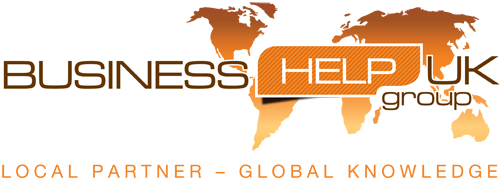Sole Trader
| CHOOSING THE BEST OWNERSHIP STRUCTURE FOR YOUR BUSINESS: SOLE TRADER (SELF-EMPLOYED) Setting yourself up as a sole trader can be ideal in professions where starting up does not require major investment, and for skilled professions. It will still allow you to employ people in the future should this become necessary. Most sole traders work alone and receive all the income and are liable for any debts incurred. The majority of sole traders work from home so setting up costs are minimal. Being a sole trader is the simplest way to get started in business. On registering as self-employed, you can start trading immediately. As a sole trader, you can have total control over your business and accounting affairs. However, a sole trader is also responsible for any liabilities should anything go wrong. It is worth considering which set-up company format is best for you. As a sole trader, you will not need to notify Companies House, nor deal with any administrative or accounting requirements which are required of Limited Companies. If you start working for yourself, you must register with the Inland Revenue as self-employed, even if you already send in a tax return. There are some exceptions and special rules for particular industries, such as the construction industry. Accounting as a sole trader is very straightforward as business income is counted alongside existing personal income. However, you will be personally liable for any debts incurred in the running of your business. You will need to submit an annual self assessment form to the HM Revenue & Customs and keep accurate and up-to-date records of all business transactions and accounts. You will also pay income tax on all profits and pay national insurance contributions on those profits. Losses can be offset against tax on other income. In the April after your business starts, HM Revenue & Customs will send you a Self Assessment tax return to fill in. HM Revenue & Customs will also use the return to assess any profit-related (Class 4) NI contributions you may need to pay. Self-Employed people are also liable for Class 2 NI contributions (currently £2.30 per week). If your income from self-employment is low (below £6,035 in the tax year 2008/09), you may be able to apply for the Small Earnings Exception. Also, if you're already paying NI contributions in another job, you may be able to defer paying your Class 2 contributions until the end of the tax year. Even though you will have registered as "self employed" when setting up, you won't automatically be VAT registered. You do not usually need to register for VAT until your turnover reaches a certain limit in any 12 months, or you expect it to do so. This limit - the 'VAT threshold' - is currently £67,000. Your annual turnover is normally the total amount of money coming into your business from the goods or services you sell.
| Self-Employed Advantages: -The easiest and least expensive form of ownership to organize -Flexible - no requirement for registration or filing documents -Fewer statutory controls -Lower National Insurance costs -Tax payable is Income Tax paid in two instalments. We can help you and advise on your self assessment tax return -Profits can be withdrawn at any time without PAYE problems. Self-Employed Disadvantages: -The sole trader is the business. On the death of the sole trader, the business effectively ceases -Unlimited liability: the sole trader is liable for all debts of the business -May be at a disadvantage in raising funds and are often limited to using funds from personal savings or consumer loans -Fewer State benefits and tax reliefs are available -Weak structure -There are certain businesses that will not use Sole Traders, particularly if you are a contractor -Tax and National Insurance is deducted directly from your profits for the year and there is less scope for tax planning. Will I need an Accountant? Yes. An accountant will prepare your accounts in a way that is acceptable to the taxman, and will ensure that you are charged the right amount of tax. But don't wait until the end of your first year of trading before finding one. An accountant can give you valuable help in setting up your bookkeeping system; if you keep your records in the form suggested by your accountant it will make his job of preparing your accounts easier and therefore cheaper. They will also be able to help you to prepare budgets and cash flow forecasts, which your bank manager will want to see. If you are self employed you will have to complete a self assessment tax return and pay the first instalment of your tax liability to HM Revenue & Customs by 31 January each year. We can complete your self assessment and prepare your company accounts for you. |














